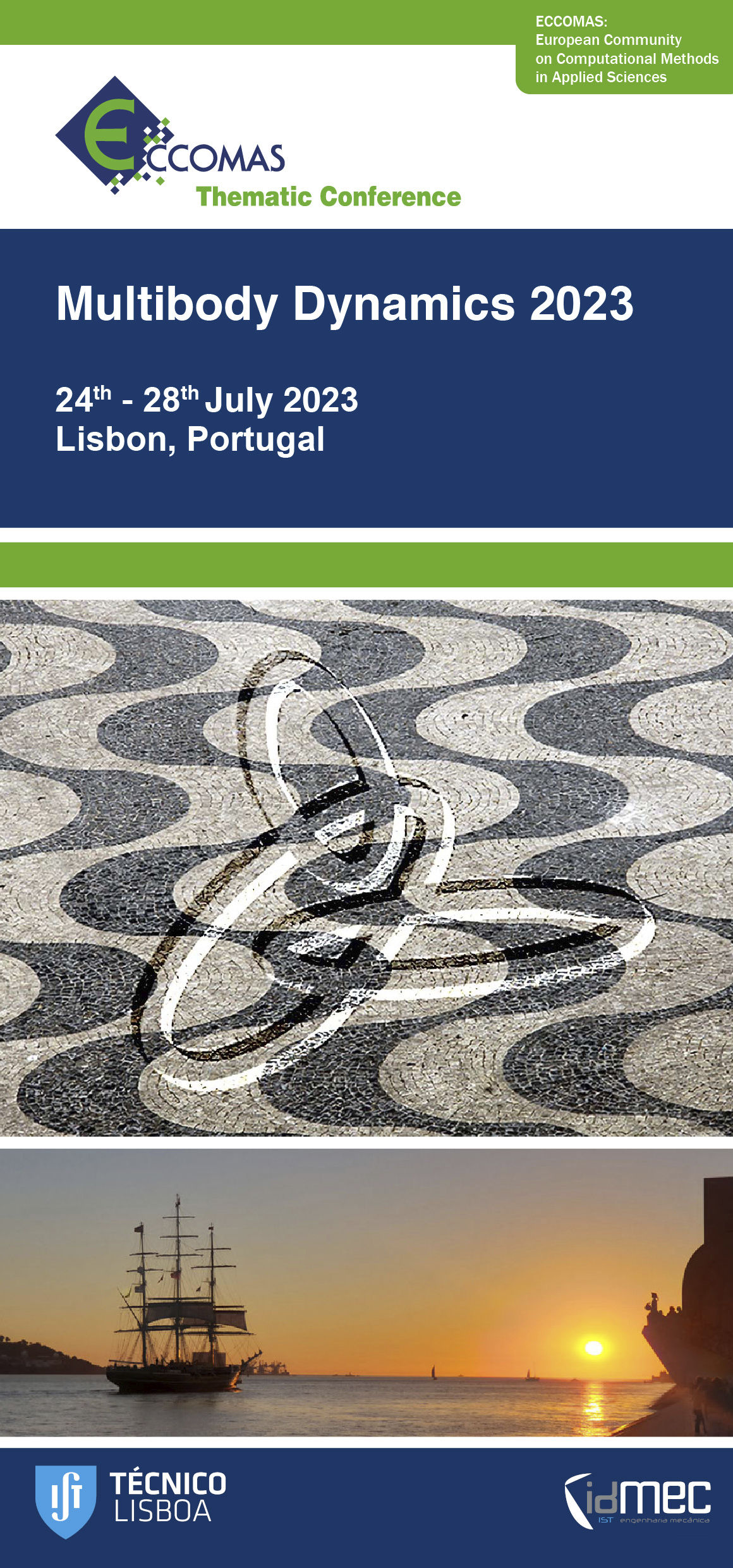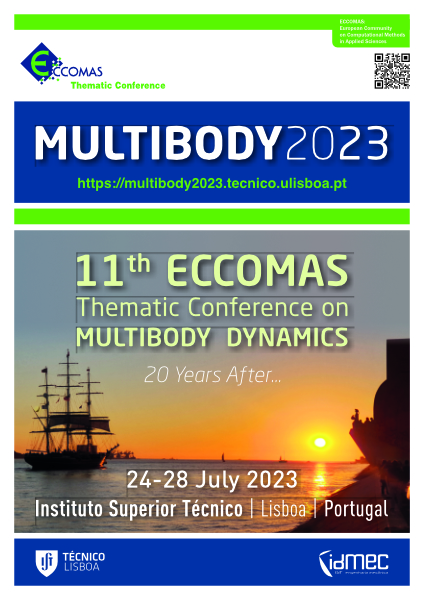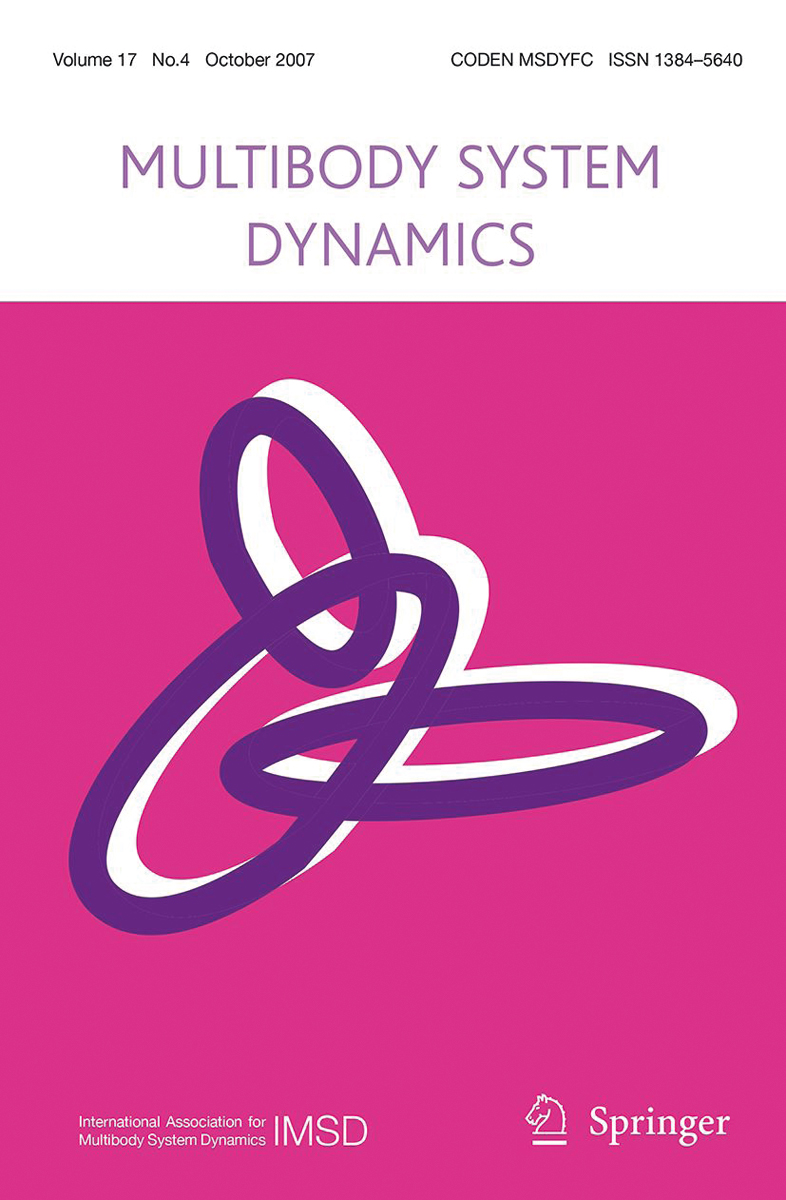> PROGRAM
Invited Speakers
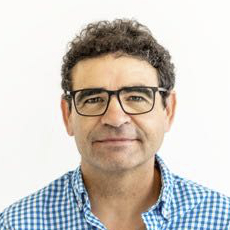
José L. Escalona
University of Seville, Spain
Presentation Title:
"Railway multibody dynamics: modeling advances and industrial applications"
> SHORT-BIO...
SHORT-BIO
Industrial Engineer in 1996 at U. of Seville (Spain). PhD in Industrial Engineering in 2000 at U. of Seville. Professor of Mechanical Engineering at U. of Seville, 2016 -, and Associate Professor at Aarhus University, 2017 -, (Denmark).
Fulbright Research Scholarship at U. of Illinois at Chicago, 2001 – 2002 and Visiting Professor at Lappeenranta U. of Technology, 2016. He is associate editor of the ASME Journal of Computational and Nonlinear Dynamics, 2011 – 2017, 2021 -, member of Scientific Board of Multibody System Dynamics, member of the ASME Technical Committee of Multibody Systems and Nonlinear Dynamics, 2016 – and secretary of the IFToMM Technical Committee for Multibody Dynamics, 2014 -.
He has been principal investigator of 9 nationally funded scientific projects and 1 H2020-Horizon ETN European project. Principal investigator of 7 industry transfer projects. He has published 60 papers published in scientific journals and supervised 6 PhD theses. He is founding member of the company Virtualmech, S.L. (www.virtualmech.com).
His research interest are railway dynamics, flexible multibody dynamics, dynamics of wire-rope mechanisms and contact and impact problems.

Pier Paolo Valentini
University of Rome "Tor Vergata”, Italy
Presentation Title:
"Advanced Pseudo-Rigid Body Models for the Design of Compliant Mechanisms"
> SHORT-BIO...
SHORT-BIO
Pier Paolo Valentini - received M.S. in Mechanical Engineering in 2000 and Ph.D. in Design of Mechanical Systems in 2004 from the University of Rome Tor Vergata. He is a Full Professor of Applied Mechanics and teaches the courses Virtual Prototyping and Simulation of Mechanical Systems, Bio-prosthesis and Advanced Computer-Aided Design Methodologies at the University of Rome Tor Vergata. He serves as a Subject Editor of the International Journal “Mechanism and Machine Theory”, published by Elsevier. He chairs the Laboratory of Virtual Prototyping and Simulation “Digital Synapsis”. His research interests are Multibody Dynamics, Mechanisms and Compliant Mechanisms, Power Transmissions, Vibration, Biomechanics, Computer-Aided Design, and Virtual and Augmented Reality. He is the author or co-author of more than 200 papers in referred international Journals and three patents. He has coordinated more than 60 research projects funded by national and international institutions and industries.
CLOSE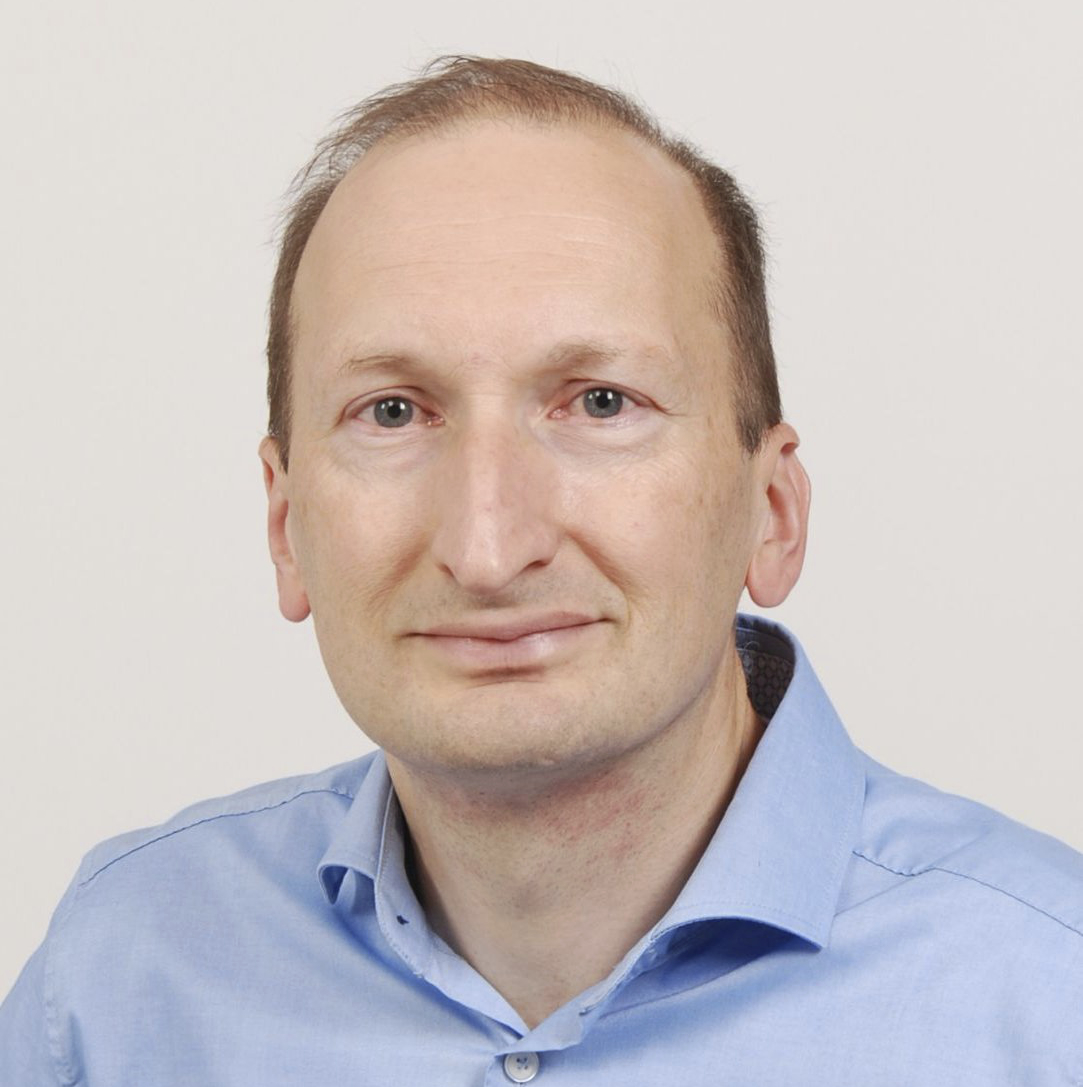
Johannes Gerstmayr
Leopold-Franzens-Universität Innsbruck, Austria
Presentation Title:
Computational methods and implementation for flexible multibody systems
> SHORT-BIO...
SHORT-BIO
After finishing his studies in mechatronics, Johannes Gerstmayr started as a research assistant in the special research area SFB13 on Numerical and Symbolical Mathematics within the project "Structural dynamics of elasto-plastic multibody systems" in 1998. He received his doctoral degree at the Johannes Kepler University Linz in 2001. After several research visits to UIC Chicago, IST Lisbon and University Duisburg-Essen with research focus on computational methods for flexible multibody systems, he finished his habilitation in Technical Mechanics in 2007. After a short research visit to Lappeenranta University of Technology in 2007, he joined the Linz Center of Mechatronics (LCM) as a key researcher and became leader of the business unit Dynamics and Control. In 2013 he received the offer for the chair of Machine Elements and Design at the newly funded Department of Mechatronics at the University of Innsbruck, which he joined in 2014. He received the Wilhelm Macke-Prize in 2005, the Upper Austrian Innovation Award in 2013 and several best paper awards. He is member of the editorial (advisory) board of Multibody System Dynamics and Acta Mechanica and Associate Editor of the ASME Journal of Computational and Nonlinear Dynamics. He served as a reviewer for more than 20 scientific journals, and he co-authored 60 papers in scientific journals and more than 120 proceedings papers, book chapters and patents.
SCIENTIFIC INTERESTS:
computational multibody dynamics, flexible multibody systems, robotics, programmable matter, numerical methods
CLOSE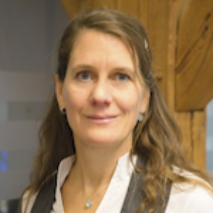
Sigrid Leyendecker
Friedrich Alexander Universität Erlangen Nürnberg, Germany
Presentation Title:
"Geometric modelling, integration and optimal control of flexible multibody dynamics"
> SHORT-BIO...
SHORT-BIO
2002 Dipl.-Math. techn., Diploma in Technomathematics, University of Kaiserslautern<br>2006 Dr.-Ing., PhD in Engineering, University of Kaiserslautern<br>2006 – 2008 Postdoctoral scholar (Alexander von Humboldt Foundation), California Institute of Technology<br>2008 – 2009 Berlin Mathematical School substitute professor, Free University of Berlin<br>2009 – 2011 Head of the Independent Junior Research Group in the DFG Emmy Noether Programme, Computational Dynamics and Control, University of Kaiserslautern<br>2011 Dr.-Ing. habil., Habilitation and venia legendi in Mechanics, University of Kaiserslautern<br>2011 – Full professor, Institute of Applied Dynamics, Friedrich-Alexander-Universität Erlangen-Nürnberg<br>2022 – 2024 Adjunct Professor, School of Mechanical, Medical & Process Engineering, Queensland University of Technology<br><br>Sigrid Leyendecker's research interests are situated in the field of computational mechanics, in particular dynamics and applied mathematics with focus on the development of efficient techniques for the simulation and optimisation of dynamical and control systems with applications to modern engineering and biomechanical questions. The considered problems come from elastodynamics, flexible multibody dynamics (representing e.g. parts of the human body in everyday movements and sports or industrial and medical robots), coupled and multirate systems. A goal is the simulation, optimisation and optimal control of their dynamics. Thereby, the further development of corresponding numerical methods is likewise important as the modelling of the nonlinear systems.<br>www.ltd.tf.uni-erlangen.de<br>
CLOSEPrizes
Lagrange Award - winners announcement
The Lagrange Award to the best PhD thesis in Multibody System Dynamics has been presented to excellent doctoral students since 2017 by the IFToMM TC for Multibody Dynamics. The award committee will present the prize of this year's edition during the closing ceremony of the 11th ECCOMAS Thematic Conference on Multibody Dynamics.
Program at a Glance
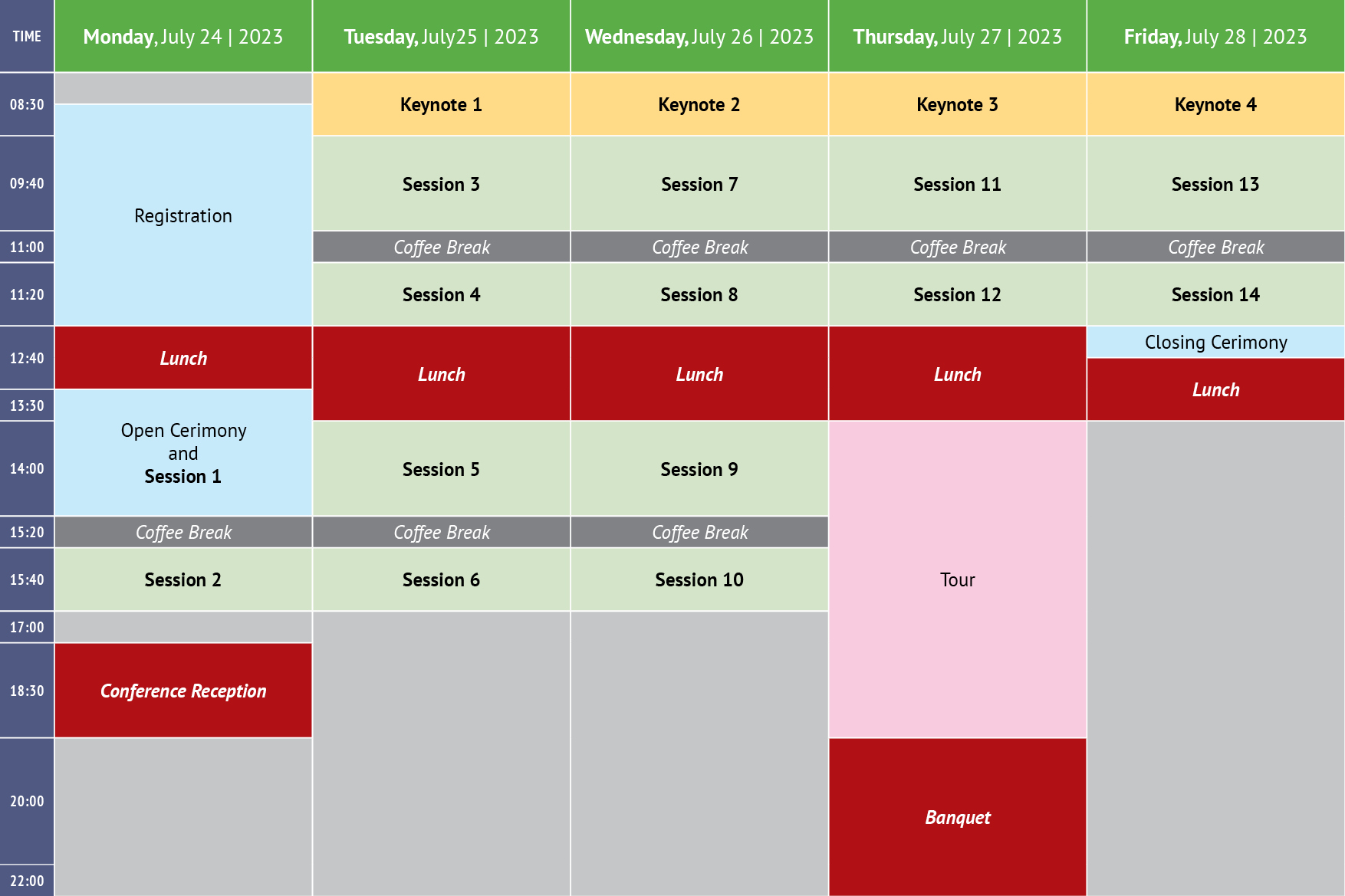
© Copyright 2022. All Rights Reserves.





